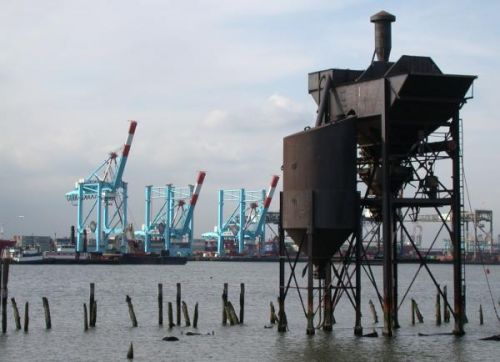WASHINGTON, DC (BRAIN) — Bike suppliers are making preparations for a possible longshoreman’s strike that could shut down ports from Maine to Texas on October 1.
Some suppliers are already diverting shipments to West Coast ports. But if the union does call a strike, even shipments to the West Coast will be hit with a $1,000 per container surcharge. Containers hold about 300 bikes each.
Pat Cunnane, president and CEO of Philadelphia-based Advanced Sports International, said he’s following the news and hoping the strike doesn’t happen.
“This is a time of the year when there are a lot of bikes on the water,” he said.
The International Longshoremen's Association and the U.S. Maritime Alliance plan to return to the negotiating table next Monday ahead of the contract expiration at the end of the month. The ILA represents dock workers on the East and Gulf Coasts.
Ocean carriers have announced a $1,000 per container “Port Congestion Charge” that will apply at all U.S. and Canadian ports for the duration of the strike. The charge would apply to any shipments that are on the water during the strike, even if the strike is settled before the ship arrives in port.
“This is a time of the year when there are a lot of bikes on the water,” — Pat Cunnane, ASI
“I for one hope they settle,” said Larry Pizzi, president of ebike supplier Currie Technologies. “It will be a mess from a delayed arrival perspective plus from a fiscal perspective, very expensive …” Pizzi said.
Although Currie brings all its bikes into Los Angeles, the company would still have to pay extra fees plus put up with possible delays due to extra shipments coming in to the West Coast.
Quality Bicycle Products has already begun re-routing some shipments that were bound for its Pennsylvania distribution center, said Scott Caldwell, QBP's customs/transportation manager.
"During July, we had identified the critical shipments to Q-East (QBP's Pennsylvania facility) that would become part of our action plan. By late July, we made the decision to reroute these critical PA shipments via the (West Coast), Caldwell said in an email to BRAIN.
ASI’s Cunnane said he’s bracing for the worst as he recalled a 2002 strike.
“That strike lasted 14 days and then it took another 10 days to get everything back on track. So it was basically a month,” Cunnane said.
ASI, which sells Fuji, Kestrel, SE Racing and Breezer bikes, is already having some critical models sent to its West Coast warehouse, he said.
A strike could lead to higher consumer prices across the board, including for gas and oil. Coming just a month before Election Day, Cunnane is hoping political pressures prevent a strike from happening.
The presidents of the American Apparel & Footwear, Gemini Shippers Association, Fashion Accessories Shippers and the Travel Goods Association wrote a letter to both sides last week, urging them to resolve the issues and avert a strike.
“We believe the impact of a stoppage would cause severe and long-lasting effects for all parties involved as shipments are diverted and retailers and importers scramble for new reliable ways to get their products on the market in time to capture the peak of consumer spending during the holiday season,” the groups’ letter read in part.




